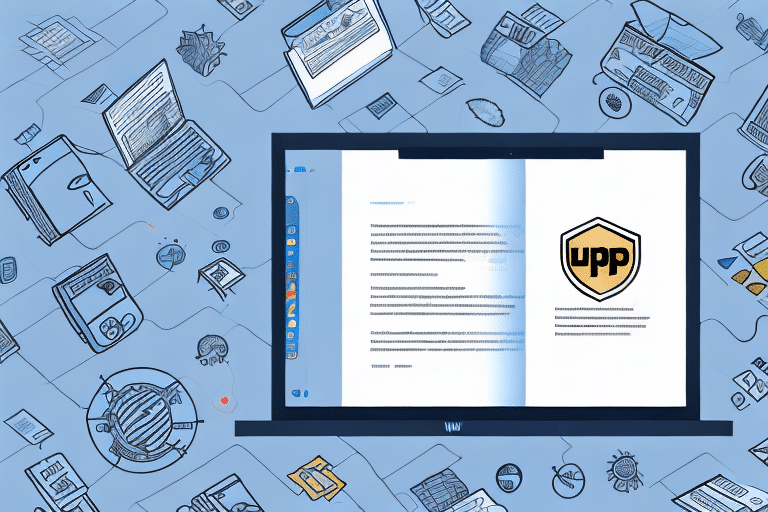How to Export Your Address Book from UPS WorldShip 2023
UPS WorldShip 2023 is a robust software solution that enables businesses to efficiently manage their shipping and tracking needs. One of its standout features is the ability to create and maintain an address book, which is essential for streamlining shipments to customers. Exporting your address book is crucial for integrating this valuable data with other applications, ensuring business continuity, and enhancing data analysis. In this guide, we’ll delve into the importance of exporting your address book, provide a comprehensive step-by-step process, and offer tips for maintaining and optimizing your address book data.
Why Exporting Your Address Book is Essential
Exporting your address book from UPS WorldShip 2023 allows for seamless integration with other software applications such as Customer Relationship Management (CRM) systems, marketing tools, and alternate shipping platforms. This interoperability not only enhances operational efficiency but also ensures that you have a reliable backup of your customer information, safeguarding against potential data loss due to software glitches or hardware failures.
Moreover, exporting facilitates collaboration by allowing you to share customer data with team members or business partners effortlessly. It also enables deeper data analysis, helping you identify customer trends and preferences, which can inform strategic business decisions and improve customer service.
According to a Forbes Tech Council report, businesses that regularly back up their data experience 60% fewer data loss incidents, highlighting the critical nature of maintaining up-to-date address books.
Exploring UPS WorldShip 2023 Address Book Features
Understanding the features of UPS WorldShip 2023's address book is fundamental before attempting to export data. The address book allows you to store comprehensive customer details, including names, addresses, phone numbers, email addresses, and custom fields tailored to your business needs. These custom fields can capture unique information relevant to your operations, such as order preferences or loyalty program statuses, enhancing the personalization of your services.
Additional features include categorization options, enabling you to group customers based on various criteria like location, purchase history, or industry. The software also supports bulk editing, importing, and exporting, making data management more efficient.
Integrating these features with other UPS WorldShip functionalities, such as label printing, package tracking, and rate calculation, can significantly streamline your shipping processes and improve overall business efficiency.
Step-by-Step Guide to Exporting Your Address Book from UPS WorldShip 2023
- Launch UPS WorldShip 2023: Open the software and navigate to the "Address Book" tab located on the main interface.
- Access the Export Wizard: Click on the "File" menu and select "Export Wizard" to initiate the export process.
- Select Data Fields: Choose the specific fields you wish to export. For comprehensive data migration, it's advisable to select all available fields to ensure no critical information is omitted.
- Choose File Format: UPS WorldShip 2023 supports various file formats such as CSV (Comma-Separated Values), TSV (Tab-Separated Values), and Excel. Select the format that best suits your target application.
- Designate Save Location: Specify the folder on your computer where the exported file will be saved.
- Execute Export: Click "Finish" to complete the export. The address book data will be saved in your chosen format at the specified location.
It's important to allocate sufficient time for the export process, especially if dealing with a large volume of contacts, to prevent any interruptions or data corruption.
Before exporting, ensure your address book data is clean and up-to-date. Removing duplicates and verifying contact information can prevent errors and improve the utility of your exported data.
Customizing Your Address Book Before Export
Customizing your address book in UPS WorldShip 2023 before exporting can enhance the relevance and usability of your data. Here’s how you can tailor your address book:
- Sort and Filter: Organize your contacts by various criteria such as name, location, or purchase history to streamline your export process.
- Add Custom Fields: Incorporate additional fields to capture specific data points unique to your business needs, such as preferred shipping methods or customer segmentation details.
- Create Templates: Save customized templates that include your preferred fields and filters, facilitating consistent data exports for recurring tasks.
These customizations not only improve data accuracy but also ensure that the exported information aligns with your business objectives and reporting requirements.
Troubleshooting Common Export Issues
Encountering issues during the export process can be frustrating. Here are some common problems and their solutions:
- Incomplete Data Export: Ensure that all necessary fields are selected in the Export Wizard. Missing fields can result in incomplete data exports.
- File Format Compatibility: Verify that the chosen file format is supported by the target application. CSV and Excel formats are generally versatile and widely supported.
- Software Updates: Make sure that UPS WorldShip 2023 is updated to the latest version to avoid compatibility and functionality issues.
- Data Formatting Errors: Check that all data entries are correctly formatted, especially for fields like phone numbers and addresses, to prevent import errors in other applications.
If issues persist, consulting the UPS technical support can provide additional assistance and solutions.
Best Practices for Maintaining and Updating Your Address Book
Maintaining an accurate and organized address book is vital for effective business communication and operations. Here are some best practices:
- Regular Reviews: Periodically audit your address book to remove duplicates, update outdated information, and verify contact details.
- Customer Updates: Encourage customers to update their information through your website or customer service channels, ensuring your data remains current.
- Data Categorization: Organize contacts into relevant categories or groups to facilitate targeted marketing and efficient data management.
- Secure Backups: Regularly back up your address book data to secure cloud storage or external drives to prevent data loss.
Implementing these practices enhances data integrity, supports effective customer relationship management, and streamlines your business processes.
Leveraging Third-Party Tools for Enhanced Exporting
While UPS WorldShip 2023 provides built-in exporting capabilities, third-party tools can offer additional functionalities to optimize the process:
- Advanced Export Options: Third-party software like Cascade or StagingCRM may offer more granular control over export parameters, such as selective field exporting and automated data transfers.
- Seamless Integration: These tools can integrate directly with popular CRM systems and marketing platforms, ensuring smooth data synchronization and reducing manual intervention.
- Enhanced Security: Many third-party solutions provide robust security features, including data encryption and access controls, safeguarding your customer information during export and transfer.
Choosing the right third-party tool depends on your specific business needs, budget, and the level of integration required with your existing systems.
Comparing Export Methods for UPS WorldShip 2023 Address Book
There are several methods to export your address book from UPS WorldShip 2023, each with its own set of advantages:
- Built-In Export Wizard: Offers a straightforward process for exporting data with customizable fields and formats. Ideal for users seeking a quick and easy export solution.
- Third-Party Software: Provides advanced features like automated exports, data mapping, and enhanced security. Suitable for businesses requiring high levels of customization and integration.
- Manual Export via Excel: Allows for direct manipulation of data within Excel, offering flexibility for detailed data analysis and customization post-export.
Selecting the appropriate method depends on factors such as the complexity of your data needs, the frequency of exports, and the desired level of automation and integration with other systems.
Understanding File Formats for Exporting Address Book Data
UPS WorldShip 2023 supports various file formats for exporting address book data, each serving different purposes:
- CSV (Comma-Separated Values): Widely supported across numerous applications, ideal for data importation into spreadsheets, databases, and CRM systems.
- TSV (Tab-Separated Values): Similar to CSV but uses tabs as delimiters, useful for systems that require or perform better with tab-based data separation.
- Excel: Provides a structured format with support for multiple sheets and richer data manipulation capabilities, suitable for detailed data analysis and reporting.
Choosing the right file format ensures compatibility with your target applications and facilitates efficient data handling and analysis.
Exporting your address book from UPS WorldShip 2023 is a fundamental task for effective data management and integration with other business tools. By following this guide, you can ensure a smooth and efficient export process, maintain data integrity, and leverage your customer information to drive business growth and operational efficiency.
When exporting address book data, always prioritize data security by exporting only necessary information and avoiding sensitive data such as credit card numbers or social security numbers. Utilize secure file transfer methods and consider password-protecting exported files to maintain the confidentiality and integrity of your customer information.






















